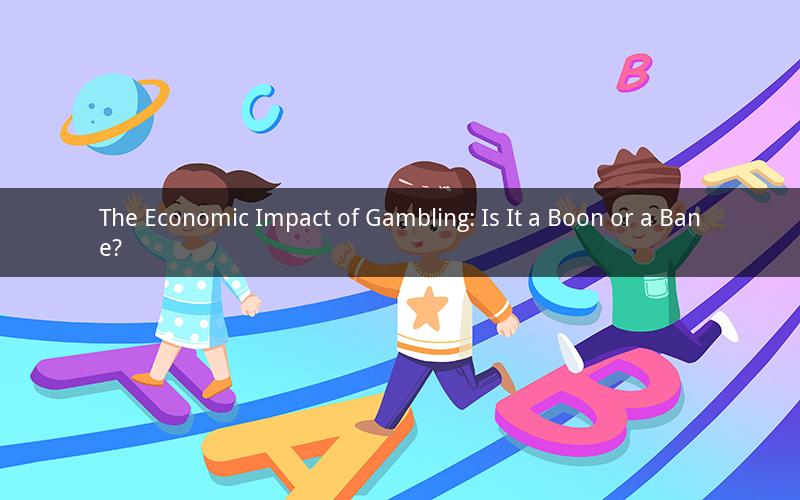
Introduction:
Gambling has long been a topic of debate, with some arguing that it contributes positively to the economy while others believe it has detrimental effects. This article explores the economic impact of gambling, examining its potential benefits and drawbacks.
I. The Economic Benefits of Gambling
1. Job Creation
Gambling industries, including casinos, sports betting, and online gambling platforms, create numerous job opportunities. These jobs range from direct employment in casinos and betting shops to indirect employment in related sectors such as hospitality, entertainment, and transportation.
2. Revenue Generation
Gambling generates significant revenue for governments through taxes and fees. This revenue can be used to fund public services, infrastructure development, and social welfare programs. For instance, the gaming industry in Las Vegas alone contributes billions of dollars to the local and state economies each year.
3. Attraction of Tourists
Gambling destinations, such as Macau and Las Vegas, attract millions of tourists annually. These visitors contribute to the local economy through spending on accommodation, dining, transportation, and shopping. This tourism boost can have a ripple effect on other industries, such as hospitality and retail.
4. Economic Growth
Gambling can stimulate economic growth by attracting investment and creating a competitive business environment. The presence of a vibrant gambling industry can lead to the development of related infrastructure, such as hotels, restaurants, and entertainment venues, which further boosts the local economy.
II. The Economic Drawbacks of Gambling
1. Problem Gambling
Problem gambling can have severe economic consequences for individuals and society. The cost of treating gambling addiction, including healthcare and social services, can be substantial. Moreover, problem gamblers may suffer from financial instability, leading to increased crime rates and social problems.
2. Lost Productivity
Employees who engage in problem gambling may experience decreased productivity, resulting in financial losses for their employers. This can lead to a decline in the overall economic performance of businesses and industries.
3. Diversion of Resources
Gambling can divert resources away from more productive sectors of the economy. For instance, individuals may spend money on gambling instead of investing in education, healthcare, or other critical areas. This diversion can hinder economic development and social progress.
4. Social Costs
Gambling-related social costs, such as family breakdowns, mental health issues, and crime, can have a significant economic impact. The cost of addressing these social problems can burden governments and taxpayers, leading to increased public spending.
III. The Role of Regulation in Mitigating the Economic Drawbacks
1. Responsible Gambling Policies
Implementing responsible gambling policies can help mitigate the negative economic impact of problem gambling. These policies may include age verification, self-exclusion programs, and awareness campaigns to educate the public about the risks of gambling.
2. Revenue Allocation
Governments can allocate a portion of gambling revenue towards addressing social costs and funding programs aimed at preventing and treating problem gambling. This approach ensures that the economic benefits of gambling are balanced with the potential drawbacks.
3. Licensing and Oversight
Effective licensing and oversight of the gambling industry can help ensure that operators adhere to ethical and responsible business practices. This can minimize the economic and social costs associated with problem gambling.
Conclusion:
The economic impact of gambling is a complex issue with both potential benefits and drawbacks. While gambling can contribute to job creation, revenue generation, and economic growth, it also poses risks such as problem gambling, lost productivity, and social costs. By implementing responsible gambling policies and allocating revenue towards addressing these issues, governments can maximize the economic benefits of gambling while minimizing its drawbacks.
Questions and Answers:
1. What are the main economic benefits of gambling?
Gambling generates significant revenue through taxes and fees, creates job opportunities, attracts tourists, and stimulates economic growth by attracting investment and developing related infrastructure.
2. What are the economic drawbacks of gambling?
Gambling can lead to problem gambling, resulting in increased crime rates, decreased productivity, and social costs. It may also divert resources away from more productive sectors of the economy.
3. How can governments mitigate the economic drawbacks of gambling?
Governments can implement responsible gambling policies, allocate revenue towards addressing social costs, and ensure effective licensing and oversight of the gambling industry.
4. What is the role of regulation in the gambling industry?
Regulation plays a crucial role in ensuring that gambling operators adhere to ethical and responsible business practices, minimizing the economic and social costs associated with problem gambling.
5. Can gambling contribute to long-term economic development?
Gambling can contribute to long-term economic development by generating revenue, creating jobs, and attracting tourists. However, it is essential to implement proper regulation and responsible gambling policies to balance the economic benefits with potential drawbacks.